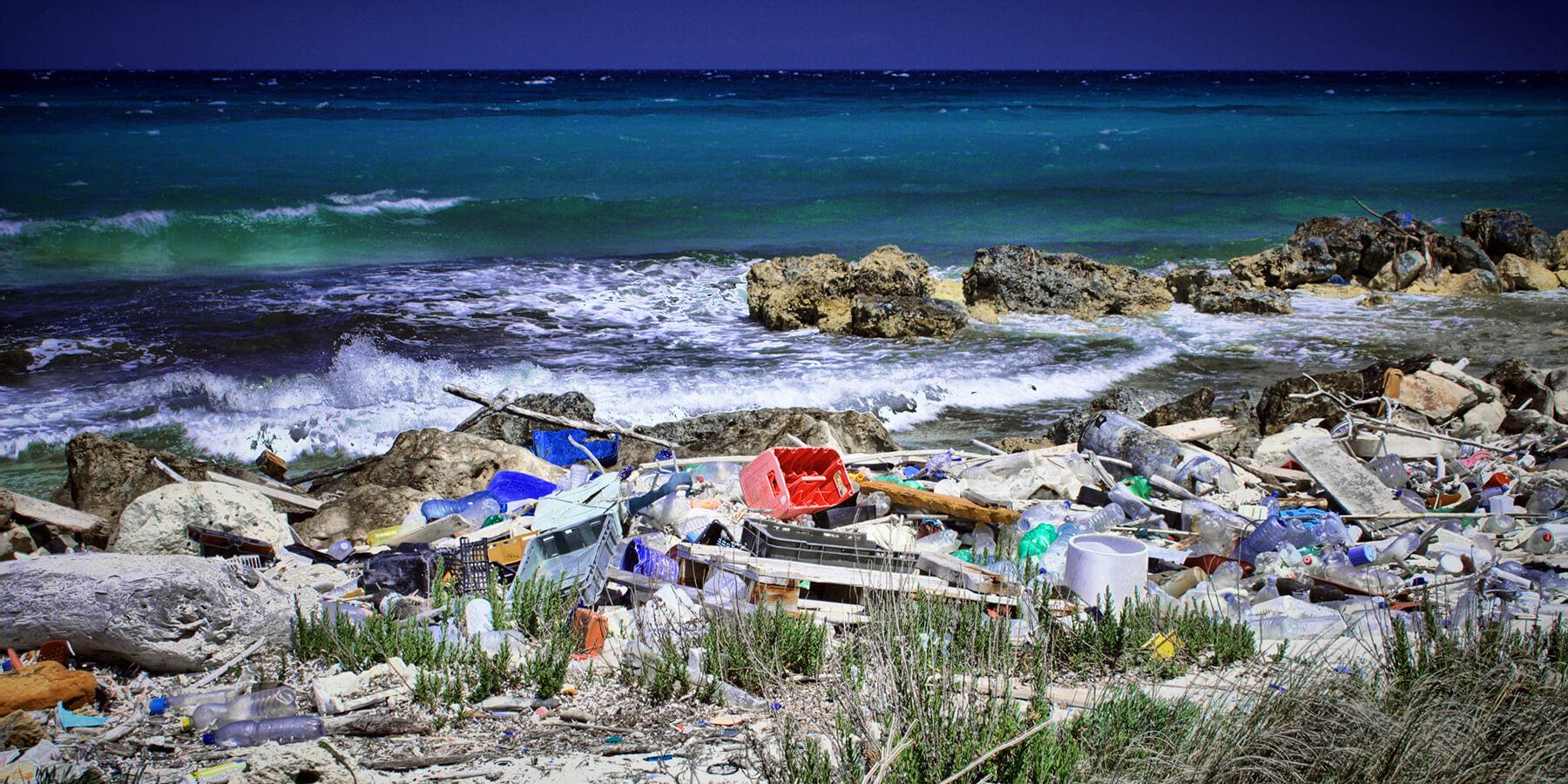
Plastic: it’s all around us, and even inside our bodies. A cheap and durable material, plastic consumption has quadrupled over the past thirty years, and production is on course to triple by 2060.
The ubiquity and durability of plastic materials mean that plastic pollution is a rapidly growing problem globally. Plastic accounts for 85% of all marine litter. Microplastic pollution has been detected in human and animal faeces, and even in human blood. Almost all existing plastic is non-degradable, and plastic has been found in sedimentary rocks, an anthropogenic marker of human pollution which could last for millennia. The UN Environment Programme (UNEP) predicts that the amount of plastic in the ocean will nearly triple by 2040, adding 23 million to 37 million tonnes more waste every year.
Plastic waste reached 353 Megatonnes in 2019, putting the world on course for a ‘plastic crisis’, fuelled by mismanaged plastic waste that eventually ends up in the ecosystem, threatening marine and land biodiversity and human health.
That’s why, in March 2022, the United Nations Environment Assembly endorsed a landmark resolution to create a legally binding treaty on ending plastic pollution in all environmental compartments. Work towards that aim has now begun in earnest, with the International Negotiating Committee tasked with developing the treaty meeting for the first time this week, in Punta del Este, Uruguay. A number of representatives of the ISC, from its Membership and Affiliated Bodies, are attending the meeting in-person and online.
Margaret Spring, Chief Conservation and Science Officer at the Monterey Bay Aquarium, will attend the meeting as a representative of the International Science Council and will deliver a statement on behalf of the Science and Technology (S&T) Major Group. In her statement, Spring welcomed the negotiations on a legally binding treaty, describing plastic pollution as ‘a multifaceted and systemic challenge’. Ending plastic pollution will require action globally throughout the full lifecycle of plastics including production, consumption, waste, recycling, disposal, leakage and greenhouse gas emissions.
Ensuring that the resulting treaty and its implementation is effective would benefit from the establishment of a scientific assessment and advisory mechanism for monitoring and reviewing progress, and providing integrated and robust scientific evidence, said Spring. The statement underlines that the the co-organizers of the S&T Major Group stand ready to mobilize science and scientists across the world towards this aim.
‘The negotiations must be informed by the best science for the outcome to be believable and actionable by governments. The ISC is willing and competent to provide such science input.’
Peter Liss, Emeritus Professor, School of Environmental Sciences, University of East Anglia.
‘A coordinated and collaborative global response to these challenges will be fundamental in providing the adequate technical and scientific support for all parties engaged in implementing the negotiated UN treaty on plastic pollution and would offer a significant contribution to the UN Decade of Ocean Science for Sustainable Development.’
Stefano Aliani, Chair of the Scientific Committee on Oceanic Research (SCOR) Working Group on Floating Litter and its Oceanic TranSport Analysis and Modelling (FLOTSAM)
The statement concludes that ‘there is enough scientific evidence to act now’. Following this week’s meeting, four additional INC meetings have been planned between now and November 2024, ahead of the UNEP report on progress of the INC during the February 2024 United Nations Environment Assembly. The ISC and its partners in the S&T Major Group are ready to contribute further to ensure that the process is backed up by robust scientific evidence across the natural and social sciences.
Image by Paolo Margari via Flickr.